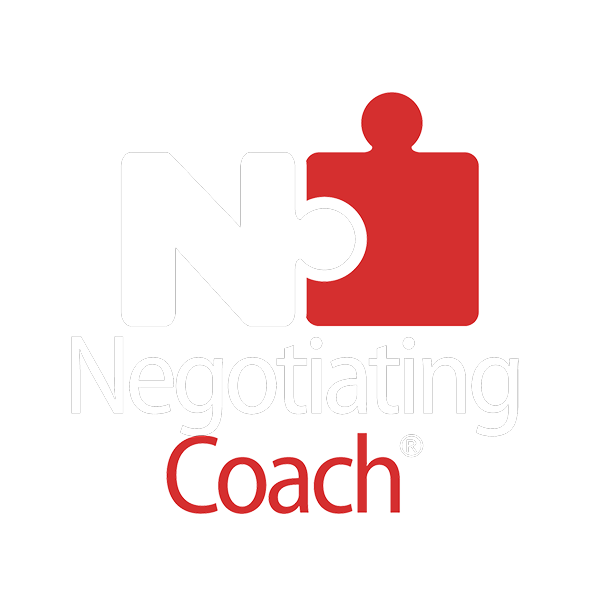Unlock the Secrets of Effective Sales Negotiation: Stop ‘Buying the Sale’ and Boost Your Bottom Line!
Unlock the Secrets of Effective Sales Negotiation: Stop ‘Buying the Sale’ and Boost Your Bottom Line!
There are ongoing troublesome behaviours that continue to plague inexperienced and experienced negotiators
Based on our research and significant experience providing negotiation skills training, negotiating coaching, and consulting expertise to corporations, small business owners, and individuals, it’s apparent that there are ongoing troublesome behaviours that continue to plague inexperienced and experienced salespeople, sales managers, and businesspeople, in any industry, when it comes to negotiating.
I’m not convinced that the millions of dollars companies spend annually on so-called “sales training” adequately improves – or changes most salespeople’s and sales managers’ behaviours. There is a proliferation of articles, blogs, LinkedIn posts, and numerous videos and webinars that attempt to help people follow a sales process and methodology, uncover customer needs and dominant buying motives, and try to instruct people on how to sell their company’s differentiated value proposition.
Based on the specific customer/account/client circumstances and market conditions, sellers at all levels of selling sophistication often focus too much on a price-based or concession-driven sale. In most selling situations, salespeople don’t realize that they’re not negotiating correctly – or negotiating at all – and they’re simply “buying the sale.”
The Strategy for a Sales Negotiation
The real art of effective sales negotiating is to complete a satisfactory exchange without giving away more than necessary.
The challenge is identifying all the potential components for exchange and realizing how much value you and, more importantly, your customers/clients/accounts place on each component. There can be many interdependent variables and moving parts involved in a negotiation.
Most salespeople spend far too much time making excuses or blaming these interdependent variables and moving parts for the less-than-desirable outcome they achieve. Too often, organizations and salespeople fall victim to their flawed negotiating process and practices. Their idea of negotiation usually involves an oversimplified barter process using an increasingly expensive package of financial and non-financial concessions that result in the salesperson “buying the sale.”
As the marketplace continues to be increasingly complex and competitive, salespeople (and sometimes their less-than-stellar sales managers) often don’t have the necessary negotiating skills. Without the required skills, people often resort to the more common and easier-to-do “concession sale.”
The High Cost of Poor Sales Negotiation Skills
Picture this familiar scenario: A salesperson makes what they think are gratuitous concessions, believing they are closing in on an acceptable deal. However, as they near the opportunity to close the sale, they realize that the other side sees all the concessions made as merely the starting point for a final negotiation. The salesperson is then “trapped” into making additional concessions to get the business and close the deal, having already committed their company to everything they have “thrown in” along the way.
Not only has the actual transaction cost gone up, but the salesperson can’t be sure that their initial concessions were required in the first place. One thing is clear: Reclaiming “spent” concessions given to customers is extremely difficult, and those concessions have become part of the ‘base package’ that the customer now expects to receive.
Because negotiating skills are not adequately refined on the selling side, some corporations are experiencing a gradual erosion of their profit margins.
On the buying side, sophisticated customers/clients are more successful at negotiating and increasing their profitability using their “situational power.” Most sellers are unaware of “situational power” and how they can potentially counter its use.
This challenging dynamic has generated many vulnerable suppliers (sellers) prepared to give more significant concessions at each transaction to maintain their gross sales revenue or unit volume in the face of collapsing profit margins.
Effective Sales Negotiation Strategies and Tips
Here are some effective sales negotiation strategies and tips to help salespeople, sales management, and businesspeople avoid “buying the sale” when negotiating:
- Learn and follow a disciplined negotiating process and methodology. Companies and individuals must invest in negotiating skill development and make good negotiation skills and practices an organization-wide capability.
- Planning and preparation are the most critical components of a negotiating process. More often than not, salespeople and sales managers “cheat” and don’t do thorough or sufficient research before starting any sales negotiation. You should always carefully and thoroughly plan and prepare for all sales negotiations – even if the salesperson and company have existing business relationships with customers. Why? Because things are constantly evolving and changing – “You don’t know what you don’t know.”
- Carefully determine, understand, and correctly diagnose the actual customer decision-making process and authority, wants, needs and dominant buying motive – before developing your price- or solution-based proposals or responses to an RFQ/RFP/RFI bid/tender process.
- Companies and salespeople must develop and utilize compelling, effective, and persuasive price- and solution-based proposals and capability presentations. (Why buy from our company and me?) Salespeople make costly mistakes when they use the terms “quote or price quote” as part of their sales vocabulary.
- Learn and understand effective customer value chain management.
- Capture and record all your costs (e.g., couriers, product samples, technical support, etc.) that you’ve provided to customers during the year and claim value for these costs in the next negotiation.
- Identify all the financial and non-financial concessions you are prepared to make and fully understand the cost of each potential concession. Don’t assume there is “value” in a concession because there is cost.
- Invest in the appropriate negotiation skills training and negotiating coaching and commit to adequately implementing and integrating the negotiating process, strategies, tactics, verbal phrases, scripts, questions, and questioning techniques.
- Reinforce your negotiating training annually to stay one step ahead of your customers and competitors.
Remember: Nothing affects the bottom line of your company more – or your income more – than having effective sales negotiation strategies and skills. You can’t make money faster than when you’re negotiating effectively!
Take Action and Invest in Our Expert Negotiating Training and Negotiation Coaching Packages, Negotiation Tools, and Online Course to Become a Better Negotiator.
» Negotiating Skills Training: Book a tailored in-house presentation, seminar or learning workshop for your organization.
Speaking Engagements – Industry Associations and Companies: Book a tailored, engaging, and impactful 60-minute to two-hour presentation at an upcoming meeting, conference or convention.
» Negotiating Coaching Packages: If your company is facing a challenging high-value negotiation and you need an expert to help you or your team – or you own a small business – or you’re an individual who needs practical negotiation advice, you can benefit from my investing in one of my three proven, results-producing negotiation coaching packages for individuals, small business owners or corporations.
» Digital Negotiation Learning Products: You can purchase my three E-books containing powerful strategies and tips. E-books: Forensic Blueprinting Questions For Effectively Selling and Negotiating Price or Fee Increases and Managing the Price-driven Sale, Selling and Negotiating Price or Fee Increases in Any Economic Environment, and Strategies and Tips on How to Effectively Manage the RFP/RFQ/RFI or Bid/Tender Process to Optimize Results and Outcomes.
You can also purchase the Negotiating Personality Type and Corresponding Negotiating Style Self-Assessment Questionnaire and Interpretation Results and my NEW Digital MP3 “Greatest Hits” Verbal Negotiating Phrases, Scripts, Questions, and Questioning Techniques. These helpful tools are in digital format and can be easily downloaded.
I provide a discounted Master Negotiator Bundle with all my Digital Learning Products.
» Online Sales Negotiation Course: If you’re in sales, sales management or a cross-functional role that supports sales, you can benefit from enrolling in my NEW self-paced Negotiating for Sales Success online course.
» Meet Negotiating Coach® Michael E. Sloopka
No part of this copyright material can be used without written permission from Selling Solutions Inc.
[/thrive_lead_lock]


